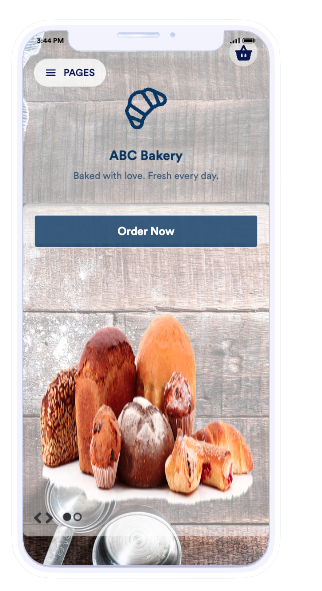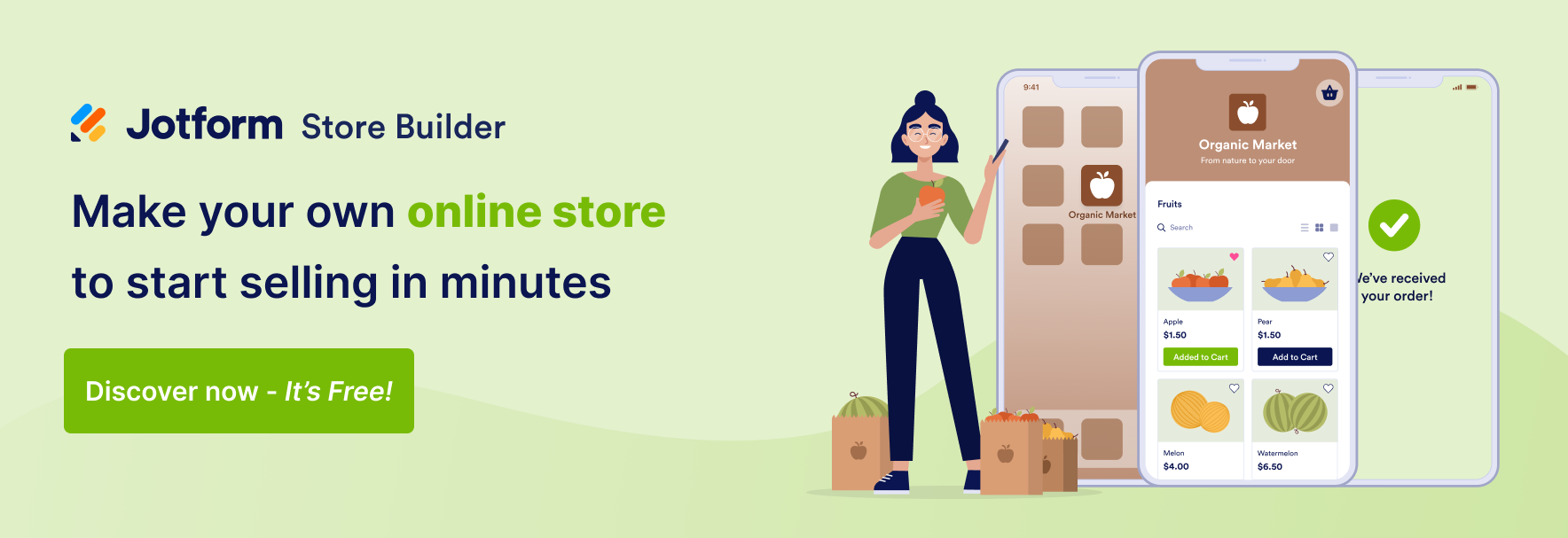How to start an online bakery business
- Determine costs
- Conduct market research
- Choose a business entity and register your business
- Take care of required permits and related legalities
- Choose your niche/specialty
- Launch and build your online presence
- Market, market, market!
Maybe you’re one of those people whose pies, cakes, cookies, and other treats consistently win rave reviews from family, friends, and coworkers. Perhaps some of them have told you, “You should open your own bakery!”
Maybe the thought intrigues and excites you, but the idea of leasing or buying a storefront and dealing with everything a brick-and-mortar business entails has put you off the idea.
While it’s easier said than done, it is possible to launch your bakery business without the hassle of leasing and outfitting a building on the main street of your town.
You can start an online bakery. (And yes, online bakeries are a real thing.)
How to start an online bakery: 7 steps
If you’ve always dreamed of owning a bakery business, don’t let the idea of operating a storefront and paying a hefty monthly rent scare you away. You can always go that route later if you decide it’s something you really want to do, but you can just as easily make the dream of sharing your mouthwatering creations with loads of happy customers come true by launching an online bakery business.
Here are seven tips to get you started.
1. Determine costs
While the cost of opening an online bakery will certainly be less than opening a physical storefront, there are still a few financial essentials to consider. To start, you’ll need to factor in the cost of equipment, cookware and baking utensils, raw ingredients and other supplies, compensation for yourself and/or employees, and the cost of insurance, business registration, and permits.
2. Conduct market research
Who is your target market, the ideal group of customers for your creations? And what are the specific kinds of baked goods they’d be willing to pay for? Do they want affordable or higher end treats?
It’s important to research your target audience at the outset so you don’t end up creating a product without a paying market — or trying to serve a hungry market with the wrong product.
If you plan to focus on corporate clients, for example, are you located in an ideal area to serve the office and business crowd? Do they want muffins, pastries, and bagels or donuts, cupcakes, and croissants?
Maybe you plan to sell strictly to restaurants, and they prefer items made with all organic or locally sourced ingredients.
You obviously have loads of options — just make sure you do your research.
3. Choose a business entity and register your business
Now it’s time to get serious. Before you launch your website, begin marketing your business, or embark on any of the other “fun” stuff associated with starting an online bakery, you need to do a few tedious but important things that will keep you on the right side of the law.
For example, you’ll have to form an LLC or other business entity and register it with the local government branch that oversees such things in your area.
4. Take care of required permits and related legalities
Because you’re operating a food business, there are a few more paperwork-related items to check off the launch list before you can legitimately open for business — even as an online operation.
This includes things like certifications, permits and licenses, and anything else deemed necessary to meet the health requirements, laws, and regulations that pertain to your region or locality.
Depending on which state you live in, you may have to obtain a license to certify you can produce and distribute baked goods, or you may need a food safety certification.
The laws vary by state and jurisdiction, so be sure to consult the government entity in your area to find out what you need to do to be compliant. In my state, that’s the Department of Agriculture & Consumer Services, Food and Drug Protection Division. It’s probably something similar where you live.
5. Choose your niche/specialty;
We touched on this above in the market research section. You’ll base your baked goods niche or specialty on your target market and their needs as well as your specialized skills and interests. These specialized skills and interests are your niche.
For example, maybe you’ve determined that your target market wants healthy treats, so you’ll specialize in gluten-free, sugar-free, and vegan items only. Or maybe you’ll position your business as a small-batch, boutique bakery that produces custom orders for a few select clients, using all organic and locally sourced ingredients. Or maybe your area needs someone who makes elaborate birthday cakes for kids’ parties. You get the idea.
Just keep in mind that you need to balance this with the demand and trends in your area.
6. Launch and build your online presence
Now that you’ve taken care of items 1–5, it’s time to set up your website or online store.
Don’t have the time or budget for a website with all the bells and whistles? No problem. You can create a beautiful, functional store with Jotform Store Builder and start selling online in minutes, no coding required.
And best of all, it’s free.
These six simple steps will take you from zero to online bakery:
- Drag and drop to create your online bakery with our free, easy-to-use no-code app builder.
- Add products to your bakery store app.
- Customize your online bakery to match your brand using one of our online store templates.
- Connect with one of over 25 payment gateways.
- Publish your store.
- Track your orders.
Check out our webinar, Introducing Jotform Store Builder, to learn more about creating your online store, including special features designed for selling, like order tracking, support for multiple gateways, integrations with other Jotform tools and features, and more.
If you don’t want to create your store from scratch, try our bakery app template. This ready-to-use template makes it easy to share order forms, customer feedback surveys, and reviews in one place. Simply customize the template to match your bakery and share the link on your website or social media. Customers can then open and download your bakery store app on any smartphone, tablet, or desktop.
7. Market, market, market!;
Now that you know your target market and niche and you’re ready to debut your online presence, it’s time to start marketing!
There are lots of free and low-cost ways to do this. For example, you can set up social media profiles for your business on the relevant platforms. Be sure to use your landing page or website URL in the bio section of each of those platforms. Post pictures to Instagram and Facebook, tweet about specials, and ask your followers to share your posts.
Even if your plan is to remain an online bakery for the life of your business, you may still want to occasionally sell your goods at local events and gatherings to give people the opportunity to actually see, smell, and taste your baked treats. Just don’t forget to share the address of your online home with them so they can place orders in the future.
Referrals and word of mouth are other effective, no-cost ways to market. Simply ask your best customers to tell their friends and family about your bakery, and give them business cards with your logo, business name, and your website or landing page URL to share with their contacts.
You could also submit your business to local listing services or create a customer loyalty program. You might even start a newsletter, where you could share exclusive behind-the-scenes bakery news and updates and subscriber-only specials.
If you have a marketing budget, consider building a full website with a blog and invest in SEO marketing, social ads, and other forms of paid advertising.
Once you’ve got a plan and a schedule for the seven steps above, and the orders and rave reviews are rolling in, you can start fantasizing about your star turn on Nailed It!, Sugar Rush, or Best Baker in America.
























Send Comment:
3 Comments:
More than a year ago
This blog excellent. I said that , bakery proofer is a grate system. a bakery is an establishment that produces and sells flour-based food baked in an oven such as bread, cookies, cakes, donuts, pastries, and pies. Some retail bakeries are also categorized as cafés, serving coffee and tea to customers who wish to consume the baked goods on the premises
More than a year ago
Your article jumped out at me. I owned a small cafe specializing in what was only to be pies but, it grew into other things. The niche as you stated one should have, I made small pies, cakes, and other pastries for what came to be the retired two person home. Seniors that bought a small pie that they could split in half for a dessert. Seniors loved the smaller Bundt cakes as they could eat them in a day or two and not waste a larger cake. So, I retired and every place I go, people say, I sure wish you were still open. So, I am thinking about an inhome bakery, and that is why your article jumped right off my iPad at me!
More than a year ago
Your post is very good very well written post. It's great to see that someone is promoting this kind of stuff. So welcome to cooperate with us!